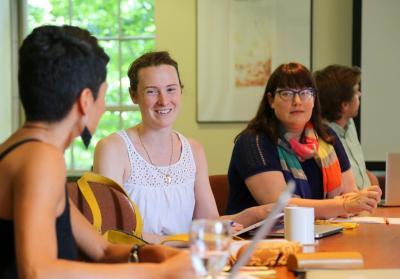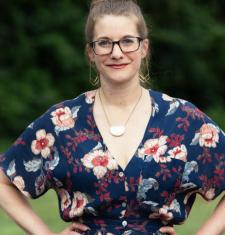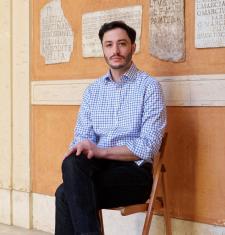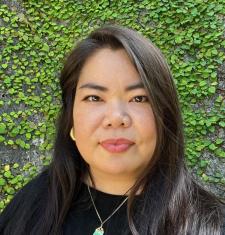Digital Humanities Summer Fellowships

The Simpson Center offers annual summer fellowships for faculty and graduate students to pursue research projects that use digital technologies in innovative and intensive ways and/or explore the historical, social, aesthetic, and cross-cultural implications of digital cultures. The program has three primary goals:
- To animate knowledge—using rich media, dynamic databases, and visualization tools
- To circulate knowledge—among diverse publics
- To understand digital culture—historically, theoretically, aesthetically, and generatively
The Simpson Center gratefully acknowledges the support of a National Endowment for the Humanities Challenge Grant and the Andrew W. Mellon Foundation as well as many donors to the endowment which is underwriting these fellowships.
2025 - 2026 Digital Humanities Summer Fellows








2020 - 2021 Digital Humanities Summer Fellow

Geoffrey Turnovsky (he/him/his)
Creation of an Interdisciplinary Minor in Digital Textual Studies
I'll develop the outlines of an Interdisciplinary Minor in Digital Textual Studies, around a core of 2-3 courses highlighting digital work in the areas of editing and publishing; archives, repositories and databases; and text analysis. The minor will build on the graduate certificate in Textual and Digital Studies, and offer students the chance for a rich intellectual engagement with materials from a textual scholarly perspective and to acquire technical skills working in digital contexts useful for many career pathways.